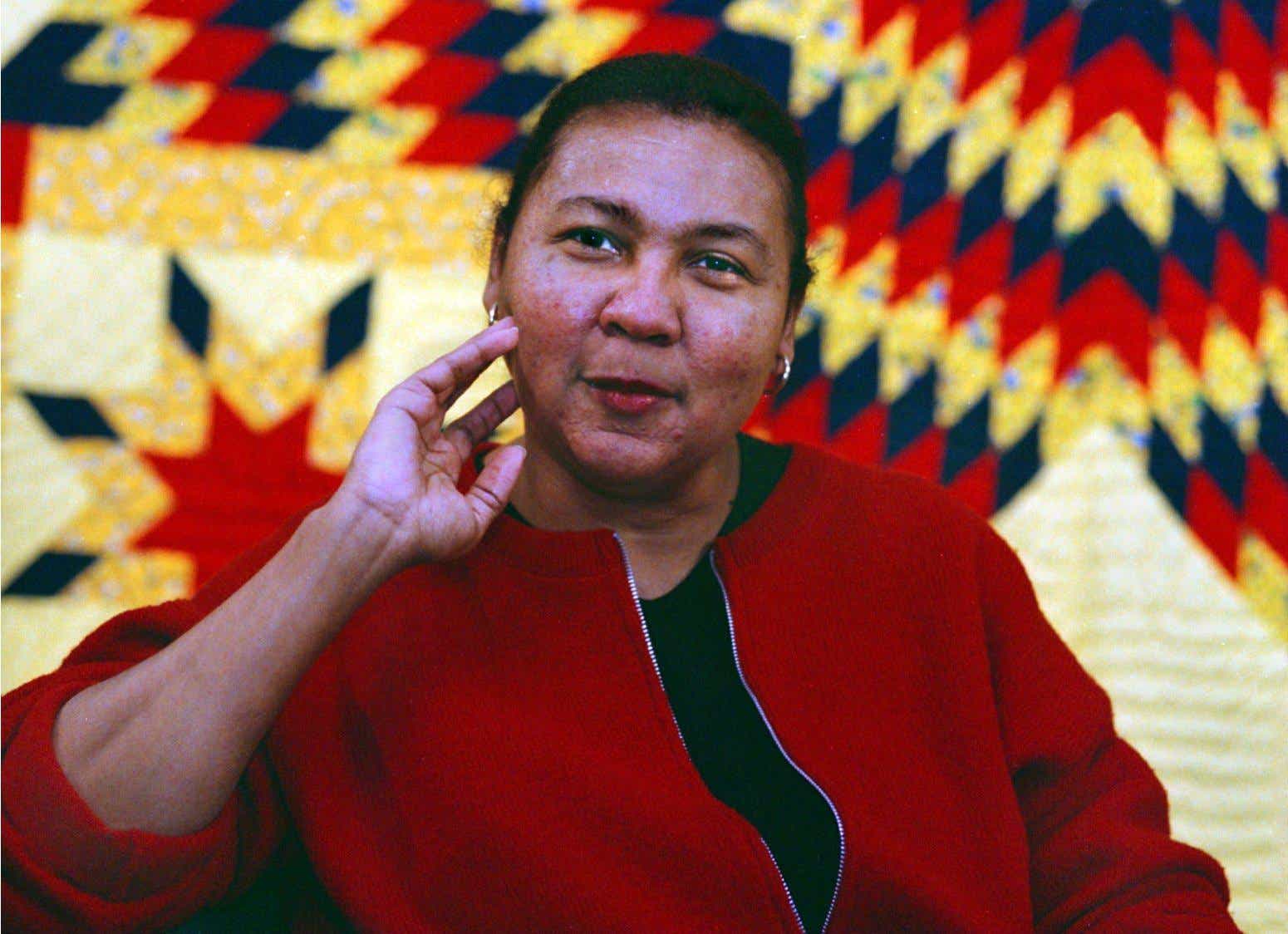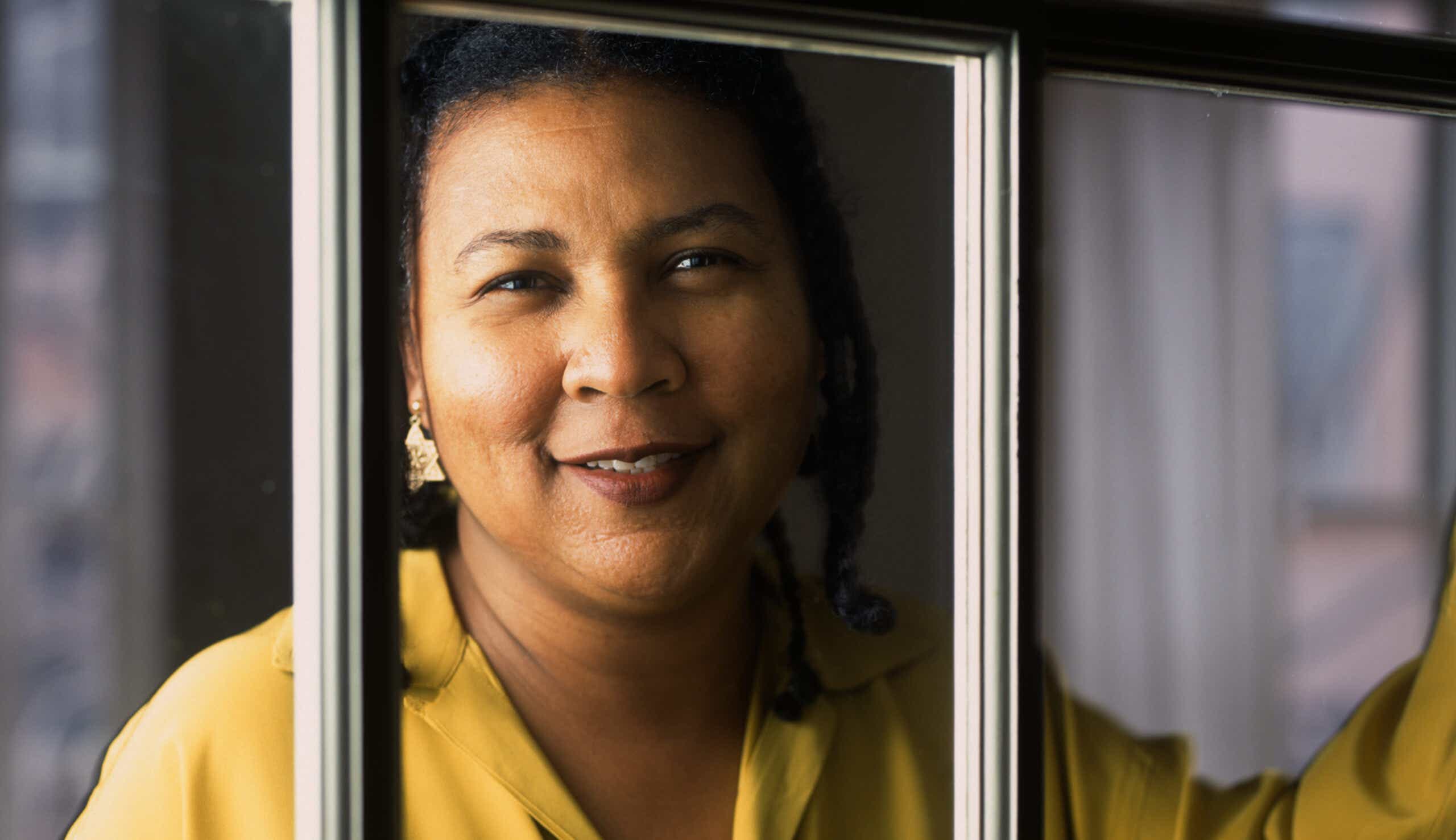Author, professor, and trailblazing activist bell hooks has died at the age of 69. Born Gloria Jean Watkins in 1952 in Hopkinsville, Kentucky, she borrowed the name “bell hooks” from her maternal great-grandmother, Bell Blair Hooks. She used lower-case letters to distinguish herself from the relative she so admired.
hooks was one of six children born to Rosa Bell Watkins and Veodis Watkins, a maid and janitor who worked in the homes of White families. She was educated in racially segregated schools until the late 60s and dedicated her creative energies thereafter to undoing the malignant harm done by discrimination in all its forms.
“I want my work to be about healing,” she said when she was inducted into the Kentucky Writers’ Hall of Fame in 2018. “I am a fortunate writer because every day of my life practically I get a letter, a phone call from someone who tells me how my work has transformed their life.”

hooks wrote more than 30 books that continue to shape debates about race, class, and culture in the U.S. — and broadened a feminist movement that was often viewed as primarily serving White, middle, and upper-class women. In 2014, she founded the bell hooks Institute at Berea College in Berea, Kentucky, where she taught as a professor.
“Berea College is deeply saddened about the death of bell hooks, Distinguished Professor in Residence in Appalachian Studies, prodigious author, public intellectual and one of the country’s foremost feminist scholars,” the college wrote. hooks died following an “extended illness,” the college said.
bell hooks quotes on race and racism
“True resistance begins with people confronting pain… and wanting to do something to change it.”
“Definitions are vital starting points for the imagination. What we cannot imagine cannot come into being. A good definition marks our starting point and lets us know where we want to end up.”
— Yearning: Race, Gender, and Cultural Politics, 1999
“All our silences in the face of racist assault are acts of complicity.“
– Killing Rage: Ending Racism, 1995
“We knew that there could be no real sisterhood between white women and women of color if white women were not able to divest of white supremacy.”
— Feminism is for Everybody: Passionate Politics, 2000
bell hooks quotes on feminism and self-actualization
“Sometimes people try to destroy you, precisely because they recognize your power — not because they don’t see it, but because they see it and they don’t want it to exist.“
“The moment we choose to love we begin to move against domination, against oppression. The moment we choose to love we begin to move towards freedom, to act in ways that liberate ourselves and others.“
– Outlaw Culture: Resisting Representations, 1994
“If any female feels she need anything beyond herself to legitimate and validate her existence, she is already giving away her power to be self-defining, her agency.“
– Feminism is for Everybody: Passionate Politics, 2000
bell hooks quotes on fellowship
“Rarely, if ever, are any of us healed in isolation. Healing is an act of communion.”
— All About Love, 1999
“To build community requires vigilant awareness of the work we must continually do to undermine all the socialization that leads us to behave in ways that perpetuate domination.“
“Dominator culture has tried to keep us all afraid, to make us choose safety instead of risk, sameness instead of diversity. Moving through that fear, finding out what connects us, reveling in our differences; this is the process that brings us closer, that gives us a world of shared values, of meaningful community.“
– Teaching Community: A Pedagogy of Hope, 2003
bell hooks quotes on love
“The one person who will never leave us, whom we will never lose, is ourself. Learning to love our female selves is where our search for love must begin.“
– Communion: The Search for Female Love, 2002
“But many of us seek community solely to escape the fear of being alone. Knowing how to be solitary is central to the art of loving. When we can be alone, we can be with others without using them as a means of escape.“
– All About Love: New Visions, 1999









